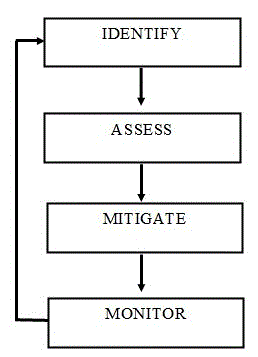HOW much weight do investors put on what is often described as political risk? The question crops up as Malaysia is expected to head to the polls soon.
Standard Chartered’s regional head of research for Asia Tai Hu Hui last month told the media categorically: “I don’t think that (the upcoming Malaysian election) is a key worry from a foreign investor’s perspective.”
Financial services company Credit Suisse had a report asserting that “political risk has receded somewhat” as Malaysian Prime Minister Najib Razak’s “approval ratings have rebounded strongly”.
Media reports about the investment climate of a country regularly refer to the fortunes of political leaders, usually with some comment about how they may have an impact on investor sentiment. But just how important is Datuk Seri Najib’s approval rating when assessing the political risk Malaysia poses to investors? Put another way, is the economic impact of what is often regarded as high political risk as readily apparent as is widely assumed?
Many believe, for example, that another shock election outcome in Malaysia will increase the risk of a repeat of the aftermath of the 2008 election. In that year, the Barisan Nasional coalition government lost its prized two-thirds majority in Parliament. The subsequent stock market sell-off and sharp reduction in foreign direct investment (FDI) inflows were certainly worrying.
Perception is one thing. But was this really the result of the election?
Similar economic trends in other countries at that time suggest that the phenomenon might have had as much to do with the global financial situation as with domestic politics. In 2008, Shanghai’s stock market dropped 65 per cent, while Jakarta’s was down 50 per cent. By comparison, Kuala Lumpur’s stock market index fell a mere 39 per cent.
The impact of another kind of political risk – terrorist attacks – is similarly difficult to assess. The decline in FDI inflows into Indonesia in 2009, for example, was well under way before the terrorist attacks on the Marriott and Ritz-Carlton hotels in Jakarta in July of that year. FDI figures for the whole year show that the decline did not accelerate in the second half.
The real attitude of investors towards the attacks was probably more accurately reflected on the New York Stock Exchange. Shares of parent company Marriott International declined 2.4per cent to US$19.96 after the news reached the United States. Compare this with a 6.2per cent drop the previous day after the company cut its forecast for 2009 profit.
FDI inflows, as captured in balance of payments data, regularly defy popular perceptions of political risk.
Last year, with political agitation by resurgent opposition groups still strong, Malaysia recorded direct investment inflows totalling US$10.8 billion (S$13.6 billion), the highest on record.
Complicating the issue of causality is the problem of definition. Professional Political risk analysts usually define political risk as the possibility that political decisions, conditions or events will negatively affect the business climate to such an extent that investors lose money or make less than previously expected.
Such political decisions or events usually involve the possibility of unwelcome regulation and interference with business operations. Examples include mandatory local equity participation, restrictions on intellectual property rights, advertising and the repatriation of profits. Other political risks involve moves on companies identified with a particular race, religion or nationality, as well as weak law enforcement or corrupt bureaucratic and judicial systems.
Many observers, however, stray from this definition, regularly equating political risk with social unrest or political paralysis. From the investors’ point of view, however, demonstrations, riots, hung parliaments and even military coups represent a significant risk only if they seem likely to play out in a way that threatens profit margins.
This helps to explain why military coups in Thailand have rarely affected FDI inflows. Investors regard such an event as a normal part of the political process that seldom results in any marked change in the business climate. Despite months of sometimes violent demonstrations before and since, FDI figures in Thailand showed a marked decline only in the months after the 2006 shutdown of Bangkok’s airport by “yellow shirt” protesters.
Comparisons between countries also have to take into account the fact that similar events can produce very different investor reactions. In many countries, the prospect of a military coup seems almost unimaginable. But if it were to happen, the business community in the nation concerned would react far more negatively than its counterpart in Thailand would. This is because the impact on the running of the country would be completely unknown.
The tolerance of investors to political risk is also influenced by familiarity with the country concerned. In a crisis, experienced foreign investors, such as the Japanese and South Korean companies in Thailand’s automotive and food processing industries, usually stay put, sometimes even moving to expand their operations. It is the newcomers who get cold feet.
The relative appeal of other countries is yet another factor to consider. One reason why political risk is regarded as more of a problem in Thailand and Malaysia these days is the greater choice that investors have. This choice is reflected in the increasingly positive regulatory environments in countries such as India, Indonesia and Vietnam.
The coming Malaysian election promises to be the most fiercely contested in the country’s history. In the heat of the campaign, the hyperbole employed by both government and opposition may make the rise and fall of particular leaders or political parties seem crucial to the country’s future. In some respects, of course, they may be right.
But how investors respond to the aftermath will be based on a much more dispassionate assessment of the extent to which business prospects have changed.
(C) Singapore Press Holdings Limited

